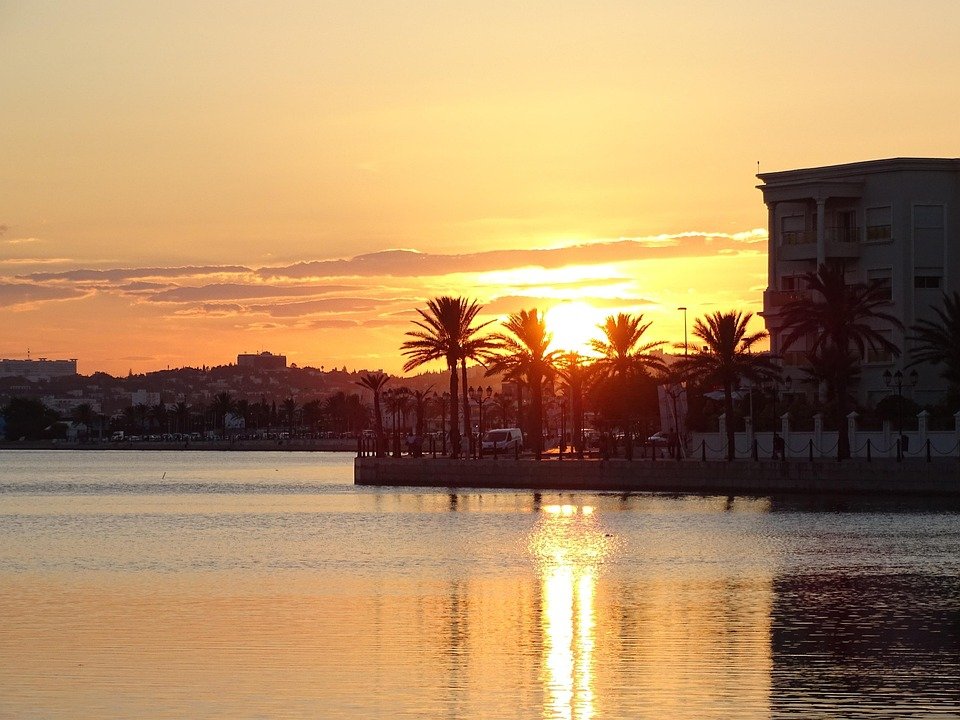Wondering when to go to Tunis without running into huge crowds or bad weather? It's a great question, and the answer really depends on what you're hoping to get out of your trip. Factors like the weather, your budget, local events, and what you want to do all play a role in determining the ideal time to go to Tunis. Let's dive into the details!
Overview of Tunis’s Climate
Tunis enjoys a Mediterranean climate, which means it has hot, dry summers and mild, wetter winters. The weather in Tunis can be quite pleasant, but it can also swing dramatically between extremes. On average, from June to September, temperatures can soar to around 30-40°C (86-104°F), while winter months from December to February can dip as low as 5°C (41°F) during the night. So, whether you're a sun seeker or someone who prefers cooler temps, understanding these trends can help you plan accordingly.
Weather in Tunis
-
Dry Season: Summers (June to September) are sweltering, and this is also when most tourists flock to the city. The average temperature can be around 35°C (95°F) in July and August.
- Wet Season: Winters (November to March) can bring rain, particularly from November to February, but temperatures remain relatively mild compared to some European countries.
This climate variety is key when deciding when to travel to Tunis. Depending on your preferences, you might find one season more accommodating than another.
Month-by-Month Breakdown
Let's unpack what each month has to offer.
January to March (Winter)
- Weather: Mild with average temperatures around 12-15°C (54-59°F) and some chances of rain.
- Events: The International Festival of Carthage usually takes place in July, but the winter months also host smaller events, such as local craft fairs.
- Pros: Ideal for budget travelers; flight and accommodation prices are lower. The atmosphere is quieter, and you can explore historical sites without heavy crowds.
- Cons: Might be too cool for beach lovers. Some attractions may have limited hours.
- Best For: Budget travelers and history enthusiasts.
April to June (Spring)
- Weather: Warmer temperatures ranging from 18-28°C (64-82°F) and minimal rainfall.
- Events: The month of May features the Tunisian Revolution Day, a great time to experience local culture.
- Pros: Pleasant weather for outdoor activities and sightseeing. Less crowded compared to summer months.
- Cons: Occasional early heatwaves can occur.
- Best For: Outdoor enthusiasts and photographers.
July to August (Summer)
- Weather: Hot, with temperatures generally around 30-40°C (86-104°F).
- Events: Peak tourist season with the Carthage Film Festival occurring in July.
- Pros: Great for beachgoers; all attractions are in full swing with festivals and activities.
- Cons: Crowded and high accommodation prices; heat can be uncomfortable for some.
- Best For: Beach lovers and festival-goers.
September to October (Fall)
- Weather: Cooler temperatures around 25-30°C (77-86°F), with pleasant evenings.
- Events: The International Festival of Carthage continues, attracting tourists and locals alike.
- Pros: Warm but not as hot as summer. Prices start to drop post-summer.
- Cons: Some attractions might begin to scale back their hours in October.
- Best For: Romantic trips and those looking for a quieter experience.
Tips Based on Travel Style
So, when should you travel to Tunis? Here's how the timing can cater to different travel preferences:
-
For Budget Travel: The winter months (January to March) are your best bet. This lower season allows you to snag deals on flights and hotels. You can enjoy a more relaxed atmosphere with less tourist traffic.
-
For Avoiding Crowds: The early spring (April to mid-June) is ideal. The temperatures are just warming up, but the crowds haven't peaked yet, giving you the chance to explore at your own pace.
-
For Outdoor Activities or Cultural Events: Spring and early fall are perfect for cultural ventures and outdoor experiences. The weather is mild and pleasant, making it ideal for walking tours, visiting ancient ruins, or just wandering through the souks (markets).
- For Romantic or Solo Trips: Late September to early November is a fantastic time. The weather is still warm, and you can enjoy quieter visits to serene spots like the picturesque Medina or the stunning ruins of Carthage.
It really depends on what kind of experience you're looking for. Some travelers love January because of the quiet vibe, while others aim for the festivals in July or the idyllic autumn setting in October.
FAQs
-
Is July a good time to visit Tunis?
Yes, but expect high temperatures and crowds due to peak tourist season. Great for beach lovers! -
When is the rainy season in Tunis?
The rainy season generally runs from November to March. -
What's the cheapest time to visit Tunis?
January to March tends to be the most economical, with lower accommodation and flight rates. - What's the peak season in Tunis?
The summer months, especially July and August, are peak travel times due to warm weather and numerous festivals.
Overall, whether you're looking to unwind on the beach, delve into history, or enjoy the local culture, Tunis has something to offer year-round. Just plan according to your style, and you'll enjoy everything this vibrant city has to offer!








